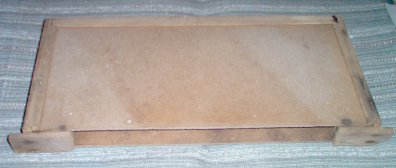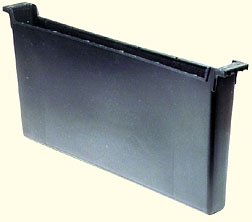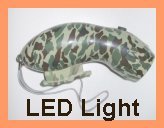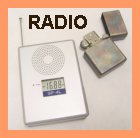|
A guide to self reliant living |
||||||||
|
6. Kerosene heaters and cookers
12.
Electrical; generators
Miles Stair's SURVIVAL
Miles Stair's
SURVIVAL |
Build a "Bee Safe" Throughout history, rural people have used their beehives as a "safe" to keep their valuables from being discovered. During WW II, some rural farms had two or three different armies go through their area, yet they emerged from the war with those valuables kept in a "bee safe" being completely untouched.
The safe shown above is for a standard deep hive body, and measures 17 7/8" long, 8 3/8" high, and is 1 3/4" wide. It was made wider than a normal frame, but fits perfectly into a 10 frame hive with 9 frames spaced properly. The bottom and sides are pine, while the sides are 1/8" Masonite. The opening on top is covered with a 1 3/4" slat when in use as a safe...that is enough to keep the bees out and no one can see inside. While it would be possible to wall off one side of a hive for use as a safe, anyone looking inside could see the unused portion. But with a single frame-sized bee safe, the top just looks like any other frame top and therefore does not appear out of place. I place the bee safe on one side of the hive, with the other 8 frames being normal wood construction frames. If the bee safe is placed in the lower hive body, it would take a very brave amateur to dig through the hive to find a "bee safe"!!! The inside of a hive is quite moist, as for every pound of honey the bees consume they exhale 10 gallons of water vapor. Anything placed in the safe should be in sealed bags to protect the contents from moisture. With an interior space 16 1/2" long, 1 1/4" wide and 7 1/2" deep, a lot of valuable can be stored in a bee safe! Jewelry, gold and silver coins, valuable small objects, all will fit into the "bee safe," as as those items are heavy for their size, the interior space is more than enough to hold that weight.
|
1. Food | 2.
Manna Meals | 3. Water |
4. Sanitation | 5. Medical, health |
| 6. Kerosene heaters and cookers | 7. Lighting | 8. Wood cooking and heating | | 9. Communications | 10. Essential Tools | 11. Home built items | | 12. Electrical; generators and power | 13. War preparedness | 14. Gardening |
| HOME |
PROPHECY
| PREPARATIONS
| QUICKENING
NEWS | COMMENTARY
BY MILES |
| GUEST SUBMISSIONS | BOOKLETS BY MILES | CONTACT INFORMATION | | LINKS | RADIATION INDEX & JET STREAM | DEVOTIONAL ITEMS | | PHOTO INDEX | LIBRARY | SURVIVAL SHOP
|
|
||||||






